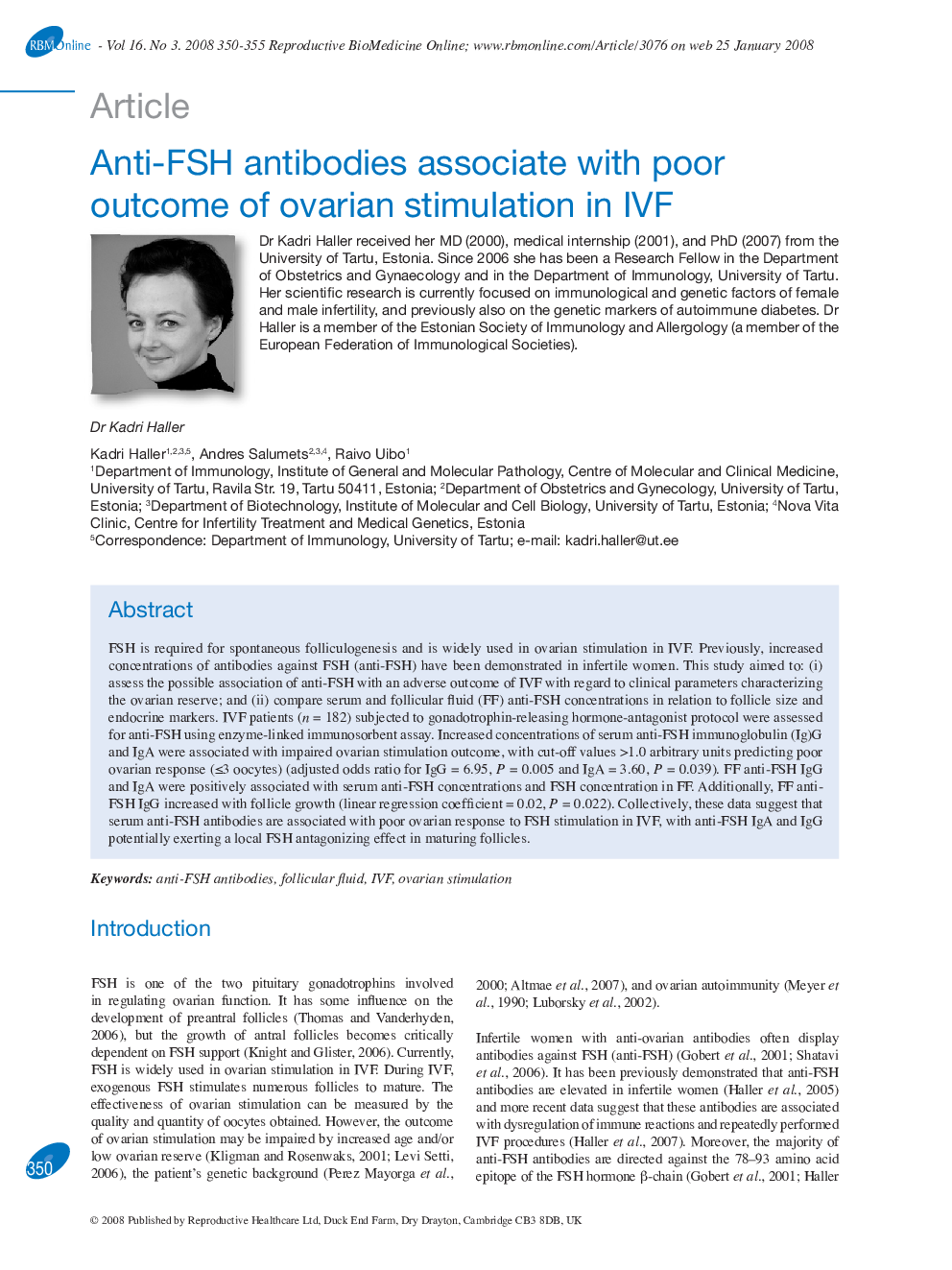| Article ID | Journal | Published Year | Pages | File Type |
|---|---|---|---|---|
| 3972750 | Reproductive BioMedicine Online | 2008 | 6 Pages |
FSH is required for spontaneous folliculogenesis and is widely used in ovarian stimulation in IVF. Previously, increased concentrations of antibodies against FSH (anti-FSH) have been demonstrated in infertile women. This study aimed to: (i) assess the possible association of anti-FSH with an adverse outcome of IVF with regard to clinical parameters characterizing the ovarian reserve; and (ii) compare serum and follicular fluid (FF) anti-FSH concentrations in relation to follicle size and endocrine markers. IVF patients (n = 182) subjected to gonadotrophin-releasing hormone-antagonist protocol were assessed for anti-FSH using enzyme-linked immunosorbent assay. Increased concentrations of serum anti-FSH immunoglobulin (Ig)G and IgA were associated with impaired ovarian stimulation outcome, with cut-off values >1.0 arbitrary units predicting poor ovarian response (≤3 oocytes) (adjusted odds ratio for IgG = 6.95, P = 0.005 and IgA = 3.60, P = 0.039). FF anti-FSH IgG and IgA were positively associated with serum anti-FSH concentrations and FSH concentration in FF. Additionally, FF anti-FSH IgG increased with follicle growth (linear regression coefficient = 0.02, P = 0.022). Collectively, these data suggest that serum anti-FSH antibodies are associated with poor ovarian response to FSH stimulation in IVF, with anti-FSH IgA and IgG potentially exerting a local FSH antagonizing effect in maturing follicles.
